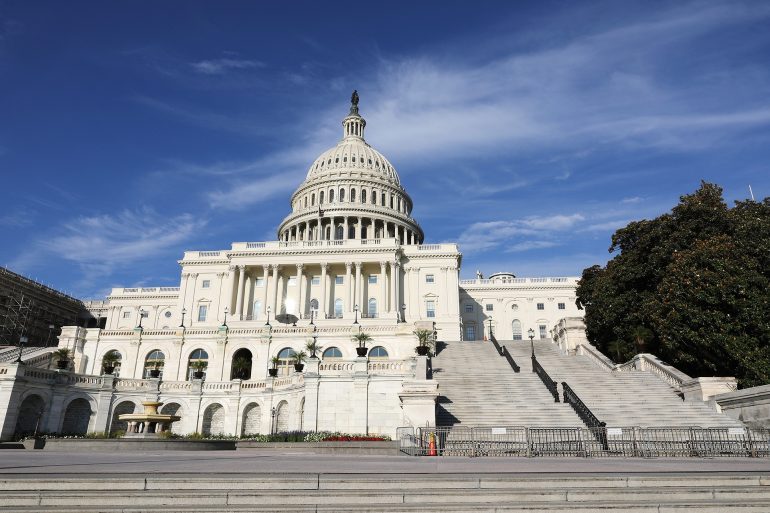- Senate unveils a comprehensive roadmap for AI regulation, proposing $32 billion annually for non-defense AI initiatives.
- Proposal emphasizes workforce training, content moderation, data privacy, and energy efficiency in AI deployment.
- Framework avoids immediate legislative action, focusing on guiding Senate committees and fostering collaboration.
- Recommendations include matching funding levels suggested by NSCAI and deliberating on the necessity of new legislation.
- Critics raise concerns about financial burdens and efficacy in safeguarding marginalized communities.
Main AI News:
In a move that could shape the future of artificial intelligence (AI) regulation, four influential Senators have unveiled a comprehensive roadmap aimed at steering the course of AI innovation and governance. Spearheaded by Senate Majority Leader Chuck Schumer (D-NY), alongside Mike Rounds (R-SD), Martin Heinrich (D-NM), and Todd Young (R-IN), the proposed framework calls for an annual allocation of at least $32 billion towards non-defense AI initiatives.
The unveiling follows months of meticulous deliberations and collaborative efforts within the AI Working Group, marked by the hosting of AI Insight Forums. These forums served as a platform for gathering insights from a diverse array of stakeholders, including industry luminaries such as OpenAI CEO Sam Altman and Google CEO Sundar Pichai, as well as input from academia, labor representatives, and civil rights advocates.
Contrary to expectations of immediate legislative action, the 20-page blueprint refrains from presenting specific bills ready for swift passage. Instead, it delineates key focal points for relevant Senate committees to concentrate on concerning AI regulation.
Outlined priorities encompass various facets such as AI workforce development, combatting AI-generated content in critical domains like child safety and electoral integrity, ensuring data privacy and copyright protection in the AI landscape, and addressing the energy implications of AI deployment. Emphasizing that the report is not exhaustive, the working group underscores its role as a guiding document for informed regulatory discourse.
Schumer underscores that the intent behind the roadmap is to provide strategic direction to Senate committees rather than promulgating sweeping, all-encompassing legislation. While commendable progress has been made, the path to enacting substantive AI regulation remains uncertain, especially in the backdrop of an impending election cycle characterized by divergent perspectives on regulatory imperatives.
Notably, the working group advocates for collaboration with the Senate Appropriations Committee to match the funding levels recommended by the National Security Commission on Artificial Intelligence (NSCAI). The proposed funds are earmarked for bolstering AI and semiconductor research and development efforts across governmental agencies and the National Institute of Standards and Technology (NIST) testing infrastructure.
Crucially, the roadmap refrains from mandating universal safety evaluations for all AI systems prior to market entry. Instead, it calls for the establishment of a nuanced framework to discern instances necessitating safety assessments, representing a departure from more stringent legislative proposals.
In a departure from ongoing legal battles over copyright regulations, the senators refrain from advocating immediate overhauls. Rather, they urge policymakers to deliberate on the necessity of novel legislation pertaining to transparency, content provenance, likeness protection, and copyright issues.
While the roadmap has garnered initial praise for its comprehensive approach, criticisms have emerged regarding the perceived financial burdens associated with regulatory measures. Amba Kak, co-executive director of AI Now, cautions against viewing the proposals as a panacea, advocating instead for enforceable legal frameworks. Similarly, Rashad Robinson of Color of Change voices concerns over the roadmap’s efficacy in safeguarding marginalized communities from AI-induced harms.
As the legislative journey unfolds, stakeholders emphasize the imperative of judiciously allocating the proposed funds to ensure the effective implementation of regulatory measures. Divyansh Kaushik of Beacon Global Strategies underscores the need for accountable appropriation practices, drawing parallels to past legislative endeavors like the CHIPS and Science Act.
Conclusion:
The Senate’s proposed AI regulatory framework signals a significant step towards responsible governance in the AI landscape. While commendable for its comprehensive approach, the proposal raises questions about financial feasibility and effectiveness in addressing societal concerns. Stakeholders must engage in rigorous deliberations to ensure a balanced regulatory environment that fosters innovation while safeguarding against potential risks.

